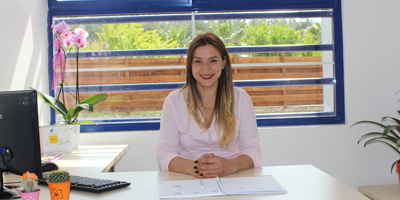EUL Academician Bilmez approached the concept of “Inclusion of Individuals with Special Needs”

Hatice Bilmez, Instructor of European University of Lefke (EUL), Education and Research Center for Children with Special Needs (ÖÇEM) made statements on the concept of “Individuals with Special Needs and Inclusion”.
Bilmez stated that, “The goal of education directed to individuals with special needs is similar with the educational goals directed to individuals with normal development”, and listed these goals as; preparing the individuals with special needs for social life, providing them with the skills necessary to enable them to live independently or least dependent. Bilmez said that, “When the condition of children with special needs is taken into consideration socially, legally, economically and psychologically, it can be seen that these students cannot be considered separate from education. Special education services take place in special education schools, special education classes in regular schools with inclusive education. Bilmez also pointed out that, the chance of individuals with special needs to receive appropriate special education services depends on the appropriateness of the least restrictive education environment in which individuals are placed and the success of inclusion.
Bilmez stated that, having the same environment with their peers, having the appropriate social skills, and thus being accepted by their peers have a positive effect on the academic success of the students with special needs and emphasized the importance of gaining social skills such as adaptation skills, self-control and skills related to peers as well as academic skills to individuals with special needs in the education process.
Pointing out that in order to apply the inclusion successfully some elements must be fulfilled and one of the most important elements necessary for successful implementation of inclusion is school management, Bilmez underlined that the fact that the school management believes in the necessity and importance of inclusion, as well as the cooperative attitude of the school administration with the special education staff, sets an example for other teachers and school staff involved in the inclusion practice and positively affects the students.
Bilmez said that, “The school counselor has important duties and responsibilities for the successful completion of the inclusion. The school counselor should be a bridge between the school administration, teachers, students, families and the Psychological Counseling, Guidance and Research Department (PDRAS). Another factor is the students in the class who have normal development. One of the objectives of inclusion is to interact with peers with normal needs and to give them the opportunity to be socially accepted by their peers”.
Bilmez pointed out that, parents, classroom teachers, peers, and special education teachers are all part of the special education that the students receive with their peers and added that in order this education to proceed with success all parts have duties and they all have to collaborate.
Bilmez said that, “Special education teachers are the ones who know the educational purposes of the student with special needs best” and thus emphasized the necessity of providing support services to the parents or classroom teacher if necessary, in order to reach the goals of the student’s program.
Bilmez also stated that, “Classroom teachers who have students with special needs in their class need to learn primarily about the students’ situation in their class and cooperate with other parts on the subjects they need. In order to know the student better, it is very important to exchange detailed information with parents about their children and to contact the special education teacher if the student has one”. Bilmez finally stated that, when the class teacher has information about the diagnostic group including the student with special needs, when she/he meets student’s parents in order to get to know the child better and when she/he learns about the educational purposes of the child from the special education teacher, she/he would decide more easily about the adaptations that she/he has to make for the student with special needs.
